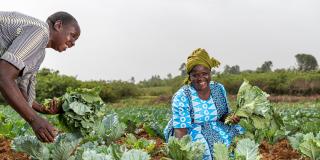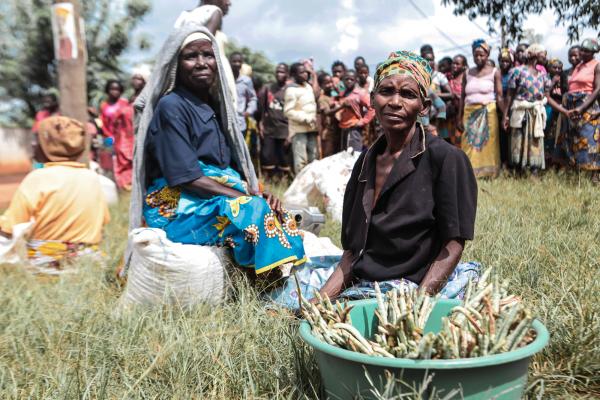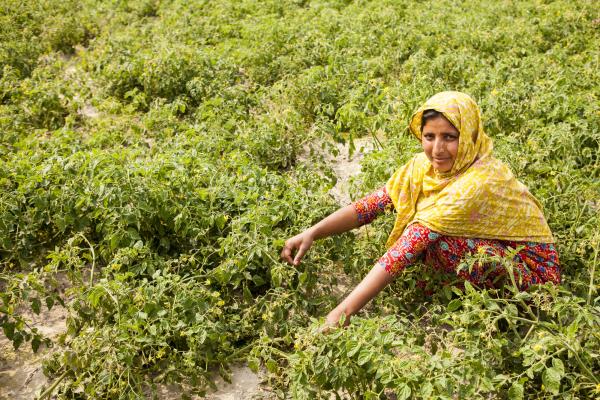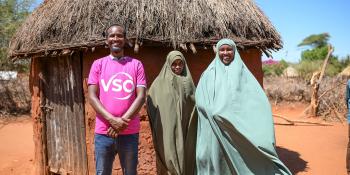
Already battered by the climate crisis and COVID-19, Africa is now facing rising food prices in light of the war in Ukraine. Investing in agroecology and smallholder farmers is the only way out of the crisis.
In a field in Chimanimani, a remote region of eastern Zimbabwe ravaged by Cyclone Idai in 2019, smallholder farmer Machia Matsika makes organic fertiliser.

“It’s a solution to the more expensive chemical type and most importantly will improve the yields,” says the 54-year-old, who community volunteers trained in the process.
Converting food waste and other natural materials to organic inputs to help improve her soil will be more environmentally friendly and allow Machia to weather another potential food crisis.
Much of Africa has already been battered by persistent drought, climate crisis and COVID-19. Now the war in Ukraine is also causing food prices to rise. Those who spend the bulk of their income buying food and basic items are being the hardest hit.
The fallout from the conflict includes Western sanctions now imposed on Russia and Belarus, huge potash exporters, which is found in fertiliser. As a result of disruptions to the global food and agricultural system, the fertiliser price alone has soared threefold, according to an African Development Bank (AfDB) estimate in a recent media report.
There are 45 African and least developed nations meanwhile importing at least one-third of their wheat from Ukraine and Russia, the UN has highlighted.
Agroecology – a climate-resilient farming approach which includes locally appropriate practices such as mulching, propagating local seed varieties, crop rotation, water conservation and harvesting – leads to greater resilience.
It is more than a set of techniques. Agroecology is also a movement of smallholder food producers. It emphasises local economies and food systems which means shorter supply chains. It will make our food system more robust against extreme climate change-fuelled weather and other shocks, such as the instability we are now witnessing in light of the war.
For the past 18 months, local agroecology volunteers working with VSO and partner Towards Sustainable Use of Resources (TSURO) have trained farmers in Zimbabwe and Mozambique to make organic fertiliser in a bid to strengthen their community’s food security.
Assisting them in setting up seed banks, in addition, has helped to reduce their dependence on external inputs such as industrial seeds and chemical fertilisers. As Queen Majokwiro, a farmer aged in her 50s, said, “We are now confident of food security, as we have more options.”

But it’s not just veteran farmers who can benefit from agroecology. Youth comprise the largest population of many African countries. They are the ones who can champion it also to address environmental challenges and create green jobs.
By doing so, they can ensure that Indigenous knowledge is saved for their and other generations, too. In Kenya, Youth for Sustainable Development (YSD), a network consisting of up to 1,000 young people, is pushing for a more significant public investment in and support for smallholder food producers and agroecology. They want more access to finance.
“Due to climate change, young farmers need support to shift from growing maise to growing fruit trees, rearing chicken and fish,” said Daniel Ngao, a young farmer in Machakos county, in Kenya’s southeast.
Smallholder farmers are a much more important global food security force than they’re given credit for – up to three billion people depend on them for their livelihoods. Governments need to commit to investing in smallholder farmers and their organisations and making agroecology a long-term strategy for addressing food security and fighting climate change.
Nearly one-quarter (23%) of global greenhouse gas emissions came from agriculture, forestry, and other land-use sectors, according to the Intergovernmental Panel on Climate Change (IPCC). Supporting a transition towards agroecology is a key part of the solution to this.
The war in Ukraine is another indication that we need to build the resilience of local food systems.
The dependence on a chemical fertiliser intensive agriculture system is expensive and environmentally destructive. A transition towards agroecology enhances nutrition, maximises production over time, and improves economic stability by diversifying income and showcasing local markets. It promotes indigenous and local knowledge and encourages the participation of local farmers in their food systems.
Through it, we can produce more and better, reduce agriculture’s contribution to climate change, and improve the management of our land, soil finance and natural resources. Today more than ever, we need to put a vision of an equitable and resilient food system into action.
Our planet’s ability to feed itself is at stake, and there is no time to lose.
Find out more about our work creating resilient livelihoods
Joseph Mandinyenya is an agroecology specialist with VSO, and Ruchi Tripathi is VSO's Global Practice Lead in Resilient Livelihoods.
Read more

The two volunteers empowering girls and young women in Mozambique
Nelma and Carmirene and are two volunteers working on VSO's EAGLE project in Mozambique. For Nelma and Carmirene, education is not just about school, it is about meeting people where they are and using the right tools to challenging harmful norms. Here are their stories.

A ripple of change: how VSO volunteers are transforming communities
Every act of volunteering begins with a choice — a decision to act out of a desire to make a difference. Across the world, VSO volunteers are proving that one spark of action can ignite something much bigger.
Opening doors to safety, education, and a brighter future
For girls in Karamoja, the poorest region in Uganda, being forced into early motherhood is all too common. This Christmas, you can open the doors to Safety, Education, and a Brighter Future.
